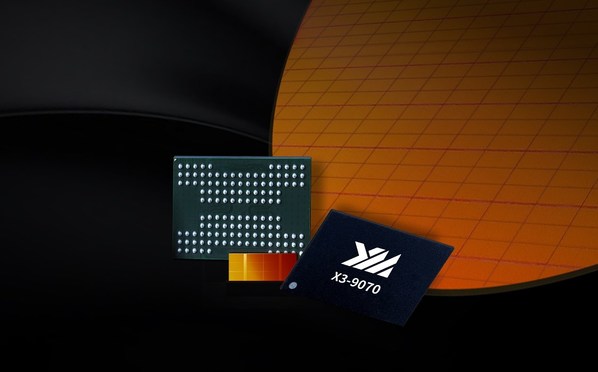China memory maker YMTC sues Micron in the US — accuses Micron of infringing 11 of its patents
The saga continues.

Get Tom's Hardware's best news and in-depth reviews, straight to your inbox.
You are now subscribed
Your newsletter sign-up was successful
Chinese 3D NAND champion YMTC has filed a lawsuit against Micron in the Northern District of California (via Blocks & Files) accusing the American company of infringing 11 of its patents covering various aspects of 3D NAND operation. Yangtze Memory asks the court to order Micron to stop the stop the sale of Micron's memory in the U.S. while awarding it with royalty fees.
YMTC says that Micron's 3D NAND memory with 96 layers (B27A), 128 layers (B37R), 176 layers (B47R), and 232 layers (B58R) as well as some of Micron's DDR5 SDRAM products (Y2BM-series) infringe 11 of its patents or patents applications filed in the U.S. The list of patent applications gathered by @lithos_graphein indicates that they cover general aspects of 3D NAND and DRAM functionality, which may essentially mean that YMTC is trying to make Micron's life harder in a get to gain a leverage against the U.S. government.
The U.S. Department of Commerce blacklisted YMTC in late 2022, which made it considerably harder for the company to obtain advanced fab equipment from American companies to build its market-leading 3D NAND devices. Last year the company faced even larger problems when the DoC barred sales of fab tools and technologies that could be used to build 3D NAND with more than 128 active layers, which was another blow for the company.
But Yangtze Memory has managed to persuade Chinese Cybersecurity Review Office to ban the use of Micron's memory in PCs used by government agencies as well as local governments.
Despite severe restrictions set by the U.S. government, YMTC continued to evolve its 3D NAND memory. The company's Xtacking 3.0 flash memory is in mass production (and some of such devices even do not infringe U.S. sanctions) and now the company is working on 3D NAND featuring its Xtacking 4.0 architecture. Also, earlier this year the company said that it had managed to dramatically improve endurance of 3D QLC NAND to a level of 3D TLC NAND (to 4,000 program/erase cycles), which significantly improves characteristics of inexpensive SSDs.
Interestingly, U.S.-based Patriot Memory is prepping a high-end PCIe Gen5 x4 SSD with an up to 14 GB/s read speed based on a controller from Maxiotek (a China-based company that evolved from JMicron) and 3D NAND memory from YMTC.
Get Tom's Hardware's best news and in-depth reviews, straight to your inbox.

Anton Shilov is a contributing writer at Tom’s Hardware. Over the past couple of decades, he has covered everything from CPUs and GPUs to supercomputers and from modern process technologies and latest fab tools to high-tech industry trends.
-
RoLleRKoaSTeR A Chinese company suing for patent infringement? - Ooooh, the irony. Get me my fainting couch.Reply -
pboymt Reply
It’s interesting that Micron has more than once used false accusations to strangle emerging competitors. Fujian Jinhua was the last victim, and it was proven that they did not infringe on any of Micron’s patents, yet the lengthy investigation process led to their eventual bankruptcy. Yangtze Memory reduced the manufacturing cost of NAND by 50% through its xtacking technology, but in order to maintain high NAND prices, Micron restricted Yangtze Memory’s capacity expansion by lobbying the U.S. Department of Commerce to add them to the entity list. Ultimately, only solid-state storage products of all brands sold in the Chinese region saw a price drop of over 60%, while consumers in other regions could not purchase such inexpensive solid-state storage products due to Micron’s malicious litigation.RoLleRKoaSTeR said:A Chinese company suing for patent infringement? - Ooooh, the irony. Get me my fainting couch. -
thestryker It'll be interesting to see if there's any merit here as Micron has been rather litigious in the past. I wonder if they'll go after the patents themselves, settle or take this onto court.Reply